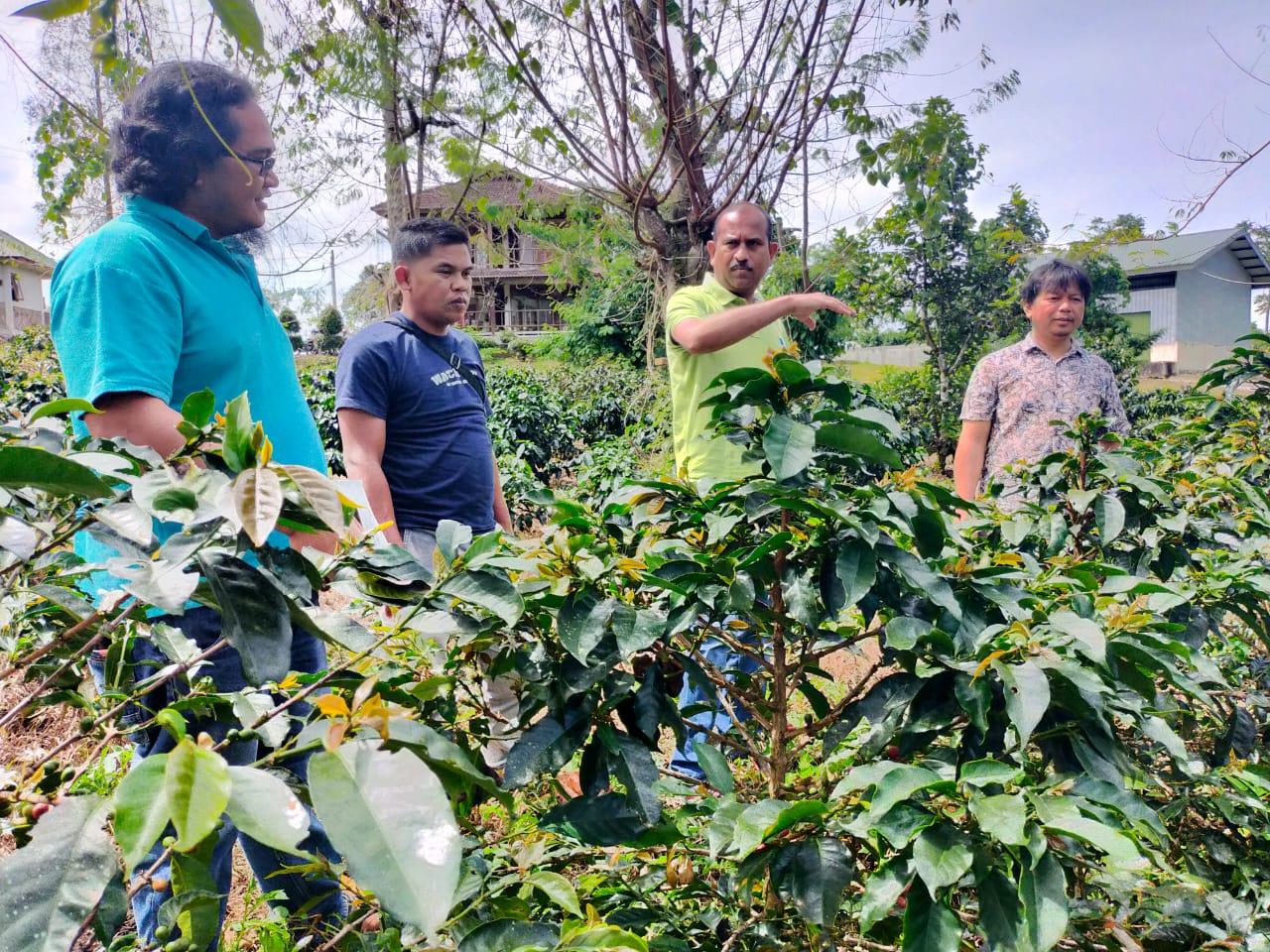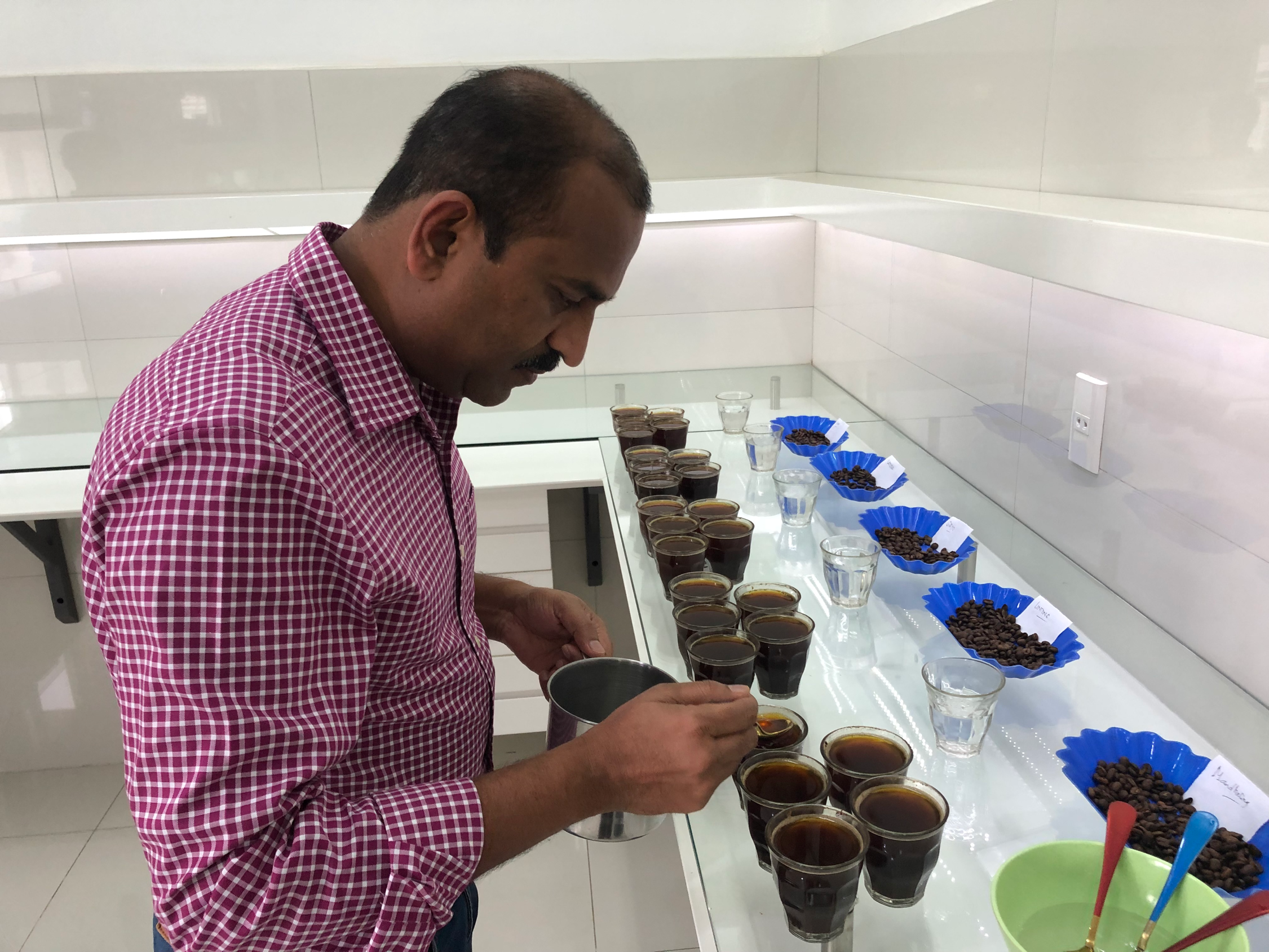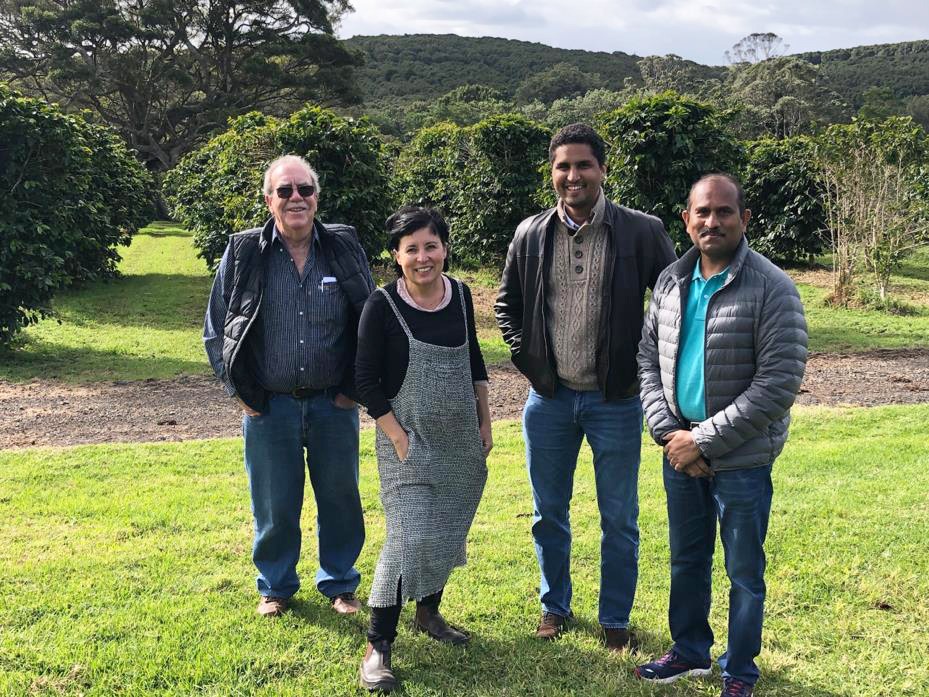

Coffee cultivation and climate change – QLD research benefits growers at home and abroad
January 25, 2023

The Crawford Fund QLD Committee supports targeted training and mentoring of overseas scientists and extension officers by experienced Queensland counterparts working on similar agricultural research challenges.
In 2021, Dr Vivekananda Mittahalli Byrareddy, a Postdoctoral Research Fellow at the Centre for Applied Climate Sciences at University of Southern Queensland (UniSQ) was awarded a Queensland International Engagement Award.
Dr Mittahalli has worked in coffee research and development initiatives in Asia-Pacific and Eastern African for about 15 years, and he recently completed his Engagement Award project which focused on seasonal climate forecasting and innovative insurance solutions to climate risk management in Indonesia and explored collaboration opportunities with world-leading commodity groups and coffee certification agencies.

The project involved training and coffee field visits conducted in Northern Sumatra, Indonesia during June and July this year by UniSQ, Australia and PT Indo Cafco (A member of ECOM coffee group), Indonesia. About 40 coffee farmers and local coffee collectors attended the training programme at the Farmers Training Centre, Lake Toba, Indonesia, and the majority of the participants were women coffee farmers (highly involved in day-to-day farming activities).
Dr Vivekananda’s presentation addressed the climate risks to arabica coffee farming, risk management and risk transfer solutions. Identifying the climate risks to coffee quality is the key task i.e., high rainfall during harvest causes bean defects (reduces quality), which reduces the price farmers can get for their coffee, while below average rainfall during the growing season leads to smaller bean size – fetching lower coffee price.
As part of the training, the use of climate services/products like season climate forecast, drought indicators and precipitation indexes based on the crop phenological stages to the target regions was explored. In addition, the group discussed how to tackle and minimise the impact of climate risks on coffee production and quality (farm management and adaptation strategies). The mechanism of index-based weather crop insurance and advantages were explained to the farmers and other stakeholders for alternative financial risk transfer as crop insurance helps in hand holding the growers in the adverse weather events.

Feedback from the local coffee farmers and collectors was that excess rain is the main issue and is occurring frequently. They also reported that in some years during flowering stage drought and high temperature is an issue in some parts of the coffee belt in North Sumatra, Indonesia. In addition, climate change is favouring increasing infestation of coffee berry borer resulting in loss of coffee quality and quantity. Farmers expressed that they are interested in digital climate services and Agro advisories as it will be user friendly and easy to understand. Almost of all of them have smartphones and are familiar with using Apps.
The training visit also included coffee tasting sessions and information about preparing coffee beans for speciality coffee markets at the PT Indo Cafco coffee lab and milling facilities at Medan, Indonesia for the quality control and supply chain associates.
Training participants were taught about the climate impact on coffee aroma, taste, and flavour (a good tasting cup of coffee fetches higher prices in the export market). The PT Indo Cafco coffee sustainability team plans to conduct more training sessions amongst their coffee sourcing base aimed at improving coffee supply and quality.
Following the training held in northern Sumatra, a delegation from ECOM Agroindustrial Crop Ltd visited the UniSQ to discuss the potential climate change impacts on global coffee production and prospects for the Australian coffee industry. Coffee researchers at UniSQ presented the experience and results from the De-risk Southeast Asia project, the benefits of using the decision support tools like seasonal forecast, crop models for yield forecast and crop insurance solutions for alternative risk management. The ECOM representatives explained the role of sustainable management services (SMS) in building sustainable value chains across coffee origins by capacity building the smallholder farmers and environmental protection. SMS is helping farmers adopt coffee certification programmes and crop diversification to increase production and income.

The delegation visited the integrated coffee farm with roastery and cafe owned by Ms Rebecca Zentveld, President of the Australian Subtropical Coffee Association (ASCA) located at Broken Head in NSW. During the visit Rebecca asked ECOM to work to provide F1 hybrids (high yielding) for field trails in Australian condition, and the ECOM delegation agreed.
During the discussion, the team expressed the potential for the Australian coffee industry to expand, provided new improved varieties and hybrids suitable to the Australian landscape and climatic conditions are developed. This project demonstrates researchers from UniSQ are actively involved in linking the Australian coffee industry with their global counterparts.




